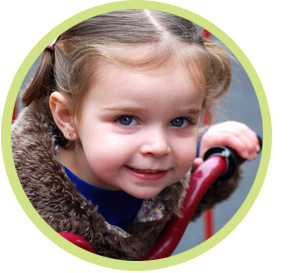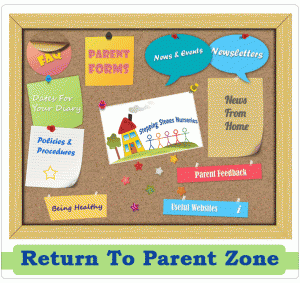Parental Learning Involvement -What is this about?
One of the ways in which your child is assessed in nursery is through collecting evidence of things they have said or done. These are put into a ‘learning journal’, which is simply a record of your child’s learning, development and achievements. Throughout nursery this is used to monitor your child’s learning and helps staff in planning their next steps.
As part of this, the EYFS (Early Years Foundation Stage) encourages parental input in to the learning journals – this means they want to know what you can see your child doing at home! Parental input is vital as it can demonstrate skills that we as educators, might not have had the opportunity to observe at nursery.
What do I need to do?
If you catch your child doing something ‘noteworthy’ or if your child has a particular interest in something, let your child’s room staff know so they can jot it down on a ‘achievement tree’ leaf, or logon to your child’s online learning journal and record the observation in there.
What should I be looking for?
The seven areas of learning in the Early Years Foundation Stage are;
- Personal, Social and Emotional development
- Physical development
- Communication and Language
- Literacy
- Mathematics
- Understanding the world
- Expressive arts and design
These areas are very broad and encompass any number of things! To make things easier, we have included some examples of observation. A simple way of thinking about it is, if it shows any of the following, jot it down:
- Shows the child using something they have learnt before, either at nursery, at home, or elsewhere
- Shows logic, reasoning, independence, creativity or interesting ideas.
- Shows them interacting with or considering the thoughts of others
- Shows them improving skills such as hand control, body control, or language
- Impresses you!
Please don’t worry that it might not meet a certain criteria – there are so many of them that each piece of evidence is bound to meet at least one!
How many should I do?
There is no limit – obviously the more the merrier, but there is no pressure to do more than time allows!
Example of observations
We have given some example of the sort of observations that could be done, this is just a small sample and the opportunities are endless;
- With some help, Jamie brushed his teeth by himself this morning
- Charlie got hot during a game and showed me he wanted to take his jumper off
- Lizzie chose to water the plants this morning
- Leah watched me make a cake this afternoon, and then wanted to help me stir the mix
- Paul pulled me over to the squash bottle and signed to me that he would like a drink
- Because you are doing a topic on transport, Daniel pointed to pictures of transport in the story I was reading to him!
- We went to Warwick Castle. Lydia had a great time trying on all the suits of armour and showed Grandad the pictures!
- Jennie tidied her toys away at bedtime
- Ruby and Lucy spent hours recreating the pantomime we went to see
- Charlie said ‘yes please’ when I asked him if he wanted a banana
- Jack and Becky sit holding hands and move backwards and forwards to the song row, row, row your boat
- Harry spent 15 minutes ‘reading’ his book by looking at the pictures and turning the pages, knowing which way up the book went.
- Charlotte put her toys from biggest to smallest
- David made a picture using shapes
- Liam spent ages pouring water from one cup to another in the bath.
- Chloe climbed up the climbing frame and slid down the slide
- Peter recognised the McDonalds writing on the happy meal
Interests
Our planning for children’s development is very much based around their interests, therefore any information regarding children’s interest is of great benefit to us. Please inform staff on your child’s interests or any recent trip or outing you have been on that we could use as a bases for their individual learning. Staff will add this information to the learning tree, look out for how staff are extending your childs learning based on this small bit of information!
For example;
- Jonny went to the park at the weekend and we enjoyed picking leaves
- Meg when to a family wedding at the weekend and enjoyed dancing
- Sammy loves playing in the water and doesn’t want to get out of the bath
- Simon like to line toys up
- Katie like to empty and fill containers
- Sophie went to the transport museum and now love looking at taxi’s
Example of home support:
Please look at the weekly input made by staff and support your child in developing this at home. This could be done in a number of different ways;
- Have a discussion with your child during dinner or bath-time about what they enjoyed about the activity
- See if you could possibly extend on the learning, by reading a related bedtime story book, or sing a related song.
- Support the development at home, e.g. if your child has done a counting activity ask your child to help count out the plates at dinner time etc.
These are just a few examples, there are endless ways that learning can be supported in an informal way at home, if you are unsure please ask your child’s key-worker for any ideas.
See here more information on the Early Years Foundation Stage (EYFS)
Download the EYFS Parents Guide Here









